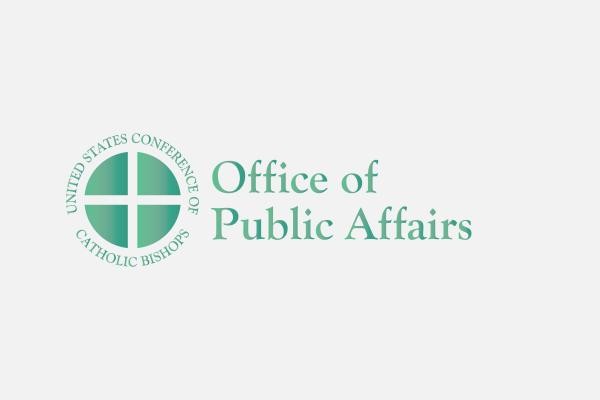Evangelical-Catholic Dialogue Studies Meaning of Christ's Atonement, Redemption
WASHINGTON—The Evangelical-Catholic Dialogue issued a statement on the meaning of the death and resurrection of Jesus at the conclusion of itsOctober 17-19 round of discussions. The dialogue has included as many as seven Catholic scholars and 15 theologians from Evangelical and Pentecostal tradition
WASHINGTON—The Evangelical-Catholic Dialogue issued a statement on the meaning of the death and resurrection of Jesus at the conclusion of itsOctober 17-19 round of discussions. The dialogue has included as many as seven Catholic scholars and 15 theologians from Evangelical and Pentecostal traditions and has met annually since 2002, at the University of St. Thomas in St. Paul, Minnesota.
On the final day of their meeting, participants adopted a consensus statement on the death of Jesus as an atoning sacrifice. The doctrine of the atonement is the teaching held by most Christians that Jesus' sacrifice on the cross brings about the reconciliation of sinful human beings with God. The statement calls the cross "the saving mystery of God's plan for the ages."
Drawing on beliefs of their religious traditions, the Catholic and Evangelical scholars agreed that "Christ's death on the Cross is the propitiatory sacrifice that satisfies the wrath of God against sin and the expiatory sacrifice that cleanses sin and shame." They said the understanding of atonement is one of the "life-giving truths" of the Gospel, but acknowledged that the two sides have yet to agree on how these truths should be lived by Christians in their worship and piety.
The dialogue also included discussions of papers presented by membersof the two teams. Gerry Breshears, Ph.D., of Western Seminary, Portland, Oregon, explored the multi-faceted accomplishments of the cross as propitiation, expiation, and triumph over sin and death. He located the meaning of Jesus' sacrificial death within the entire Gospel account of Jesus' birth, ministry, and passion-resurrection.
David Fleischacker, Ph.D. of the University of Saint Francis, Fort Wayne, Indiana, spoke from the Catholic position. He placed Christ's redemption in the context of creation and the fall of Adam and drew on the Old Testament to show the historical preparation for the Kingdom of God as revealed in the Incarnation. References to the Old Testament manifest the constant emergence of the stages of fulfillment in the divine plan of Redemption, he said.
Fleischacker said that Jesus' offering of himself on the cross and inthe Eucharist transcends and yet fulfills the animal sacrifices of Israel's temple worship. He said the Ark of the Covenant is fulfilled in the life and faith of Mary and that the Church comes "to house the holy of holies" where humanity is restored in baptism and nourished by the Eucharist.
Father Arthur Kennedy, co-founder of the dialogue and Rector of SaintJohn's Seminary, Brighton, Massachusetts, reviewed the historic development of the theology of the atonement from scriptural teachings and St. Anselm's theology of the atonement as "satisfaction."
Bishop John Gaydos of Jefferson City, Missouri, and Bonn Clayton, staff of the National Association of Congregational Christ Churches, co-chaired the meeting.
Catholic participants included Bishop Gaydos, Ralph Del Colle, Ph.D.,Marquette University, Milwaukee; Fleischacker; Father Michael Keating,University of St. Thomas; and Father Kennedy.
Evangelical participants included Clayton; Glen Menzies, North Central University, Assemblies of God; Dennis Jowers, Faith EvangelicalSeminary, Korean American Presbyterian; Breshears, Baptist; W. Paul Freeman, The Salvation Army; Steven Hoskins, Trevecca Nazarene University, Church of the Nazarene; Duane Fisher, Waite Park Wesleyan Church, The Wesleyan Church; Michael Salmeier, Life Pacific College, Church of the Four Square Gospel; and Jeff Staub, Central Baptist Seminary.
Father James Massa, Executive Director of the Secretariat for Ecumenical and Interreligious Affairs, was also in attendance to thank the participants for seven years of fruitful ecumenical scholarship. "It is my expectation," he said, "that the papers of this exemplary dialogue and the consensus statement on the Atonement of Christ adoptedat this recent meeting will be documented in book form in the coming years."


